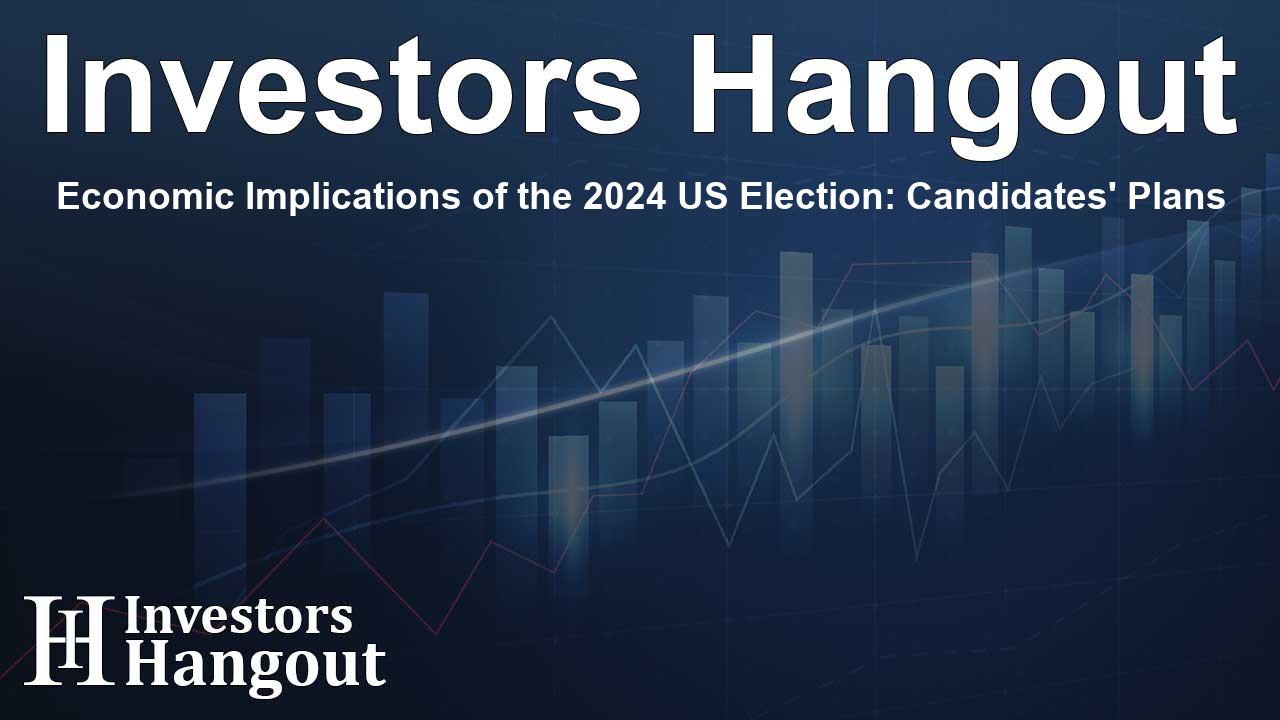Economic Implications of the 2024 US Election: Candidates' Plans

Understanding the Economic Landscape of the 2024 Election
The upcoming U.S. election in 2024 brings to light significant economic implications that could reshape the nation's financial landscape. The proposals put forth by the candidates are under scrutiny, especially concerning their potential effects on growth and fiscal deficits.
Analyzing Candidates' Proposals
Detailed assessments from analysts have highlighted the differences between the economic strategies of the candidates. Former President Donald Trump and Vice President Kamala Harris both have distinct approaches that can lead to varying economic outcomes.
Trump's Economic Strategy
Trump's platform emphasizes major tax cuts, proposing to reduce the corporate tax rate to 15% and eliminate taxes on Social Security benefits. Additionally, there's a plan to de-regulate numerous industries, which he claims would invigorate economic activity.
However, Trump's proposals come with their share of concerns. His intention to implement a 10% universal tariff alongside a potentially staggering 60% tariff on Chinese goods could introduce significant economic risks. While this could generate some revenue, the resultant economic slowdown may limit growth prospects.
Harris's Approach to Fiscal Policy
Conversely, Harris plans to restore corporate tax rates to 28% and escalate income tax rates for high earners. Her focus also extends to enhancing social benefits, such as expanding child care and offering paid family leave. Although these policies might promote a more equitable distribution of wealth, they could stifle economic growth in the short term.
Impact on Federal Deficits
The implications of both candidates' strategies on the federal deficit are crucial to examine. Currently, projections suggest that under Trump's administration, especially with the proposed tariffs, the federal deficit might slightly decrease. This reduction is expected to stem from increased revenue through tariffs, rather than from any significant fiscal discipline.
On the other hand, should Harris win the presidency, her policies are likely to widen the deficit, even though the increase may not be quite as severe as that under Trump's plans absent tariffs. This dynamic underscores ongoing challenges for long-term fiscal sustainability across both scenarios.
The Role of Congress in Economic Stability
The composition of Congress post-election is poised to play a pivotal role in shaping economic outcomes. A divided Congress, regardless of presidential victor, may encourage collaborative processes that could mitigate some of the extreme measures proposed by either candidate.
This scenario is likely to provide a constructive environment that stimulates economic growth while allowing for negotiation. However, sectors impacted by tariffs might continue to face challenges regardless of legislative composition.
Conclusion: Preparing for Economic Outcomes
Ultimately, understanding the diverse economic strategies at play during the 2024 election is essential for anticipating future financial conditions. The proposals made by Trump and Harris lay a foundation for robust discussions around growth, equity, and fiscal health, with lasting impacts beyond the election itself.
Frequently Asked Questions
What are the key economic policies proposed by Donald Trump?
Trump's main proposals include reducing corporate taxes to 15%, eliminating taxes on Social Security benefits, and deregulating various industries.
How does Kamala Harris's plan differ economically from Trump's?
Harris aims to increase corporate taxes back to 28% and enhance social benefits, contrasting sharply with Trump's tax cuts aimed at stimulating growth.
What potential risks do both candidates' policies pose to the economy?
Trump's tariffs could lead to economic slowdown while Harris’s tax increases may hinder short-term economic growth.
How might the composition of Congress affect these economic plans?
A divided Congress could encourage bipartisanship, potentially leading to more moderated policy implementations and reduced impacts on deficits.
What are analysts saying about the long-term effects of these proposals?
Analysts express concern that both candidates' plans may present challenges for long-term fiscal sustainability and economic growth.
About Investors Hangout
Investors Hangout is a leading online stock forum for financial discussion and learning, offering a wide range of free tools and resources. It draws in traders of all levels, who exchange market knowledge, investigate trading tactics, and keep an eye on industry developments in real time. Featuring financial articles, stock message boards, quotes, charts, company profiles, and live news updates. Through cooperative learning and a wealth of informational resources, it helps users from novices creating their first portfolios to experts honing their techniques. Join Investors Hangout today: https://investorshangout.com/
Disclaimer: The content of this article is solely for general informational purposes only; it does not represent legal, financial, or investment advice. Investors Hangout does not offer financial advice; the author is not a licensed financial advisor. Consult a qualified advisor before making any financial or investment decisions based on this article. The author's interpretation of publicly available data shapes the opinions presented here; as a result, they should not be taken as advice to purchase, sell, or hold any securities mentioned or any other investments. The author does not guarantee the accuracy, completeness, or timeliness of any material, providing it "as is." Information and market conditions may change; past performance is not indicative of future outcomes. If any of the material offered here is inaccurate, please contact us for corrections.